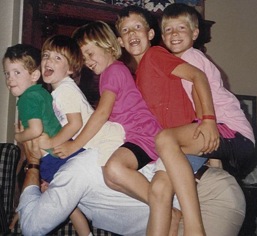This series is about coaching distinctions used with hundreds of clergy, from all corners of the church: Episcopal to Calvary Chapel, Foursquare to Presbyterian, Adventist to Nazarene. The desire or distress that brings them to hire me varies widely. But, the work we do doesn’t.
This series, now 48 entries long, illuminates distinctions that’ve been most helpful for these ministry leaders.
 It’s offered to help you who coach, counsel, and shepherd the shepherds… and to support my clients, past, present, and future. Working these perspectives, postures, and practices into my own life has taken years. Many foundational beliefs and assumptions have been challenged and replaced as I’ve committed to live these distinctions. It’s required repentance—biblically normative, but increasingly rare these days.
It’s offered to help you who coach, counsel, and shepherd the shepherds… and to support my clients, past, present, and future. Working these perspectives, postures, and practices into my own life has taken years. Many foundational beliefs and assumptions have been challenged and replaced as I’ve committed to live these distinctions. It’s required repentance—biblically normative, but increasingly rare these days.
True repentance that’s born of a broken heart.
Let me illustrate.
“Free is the man who wills without caprice… He believes in destiny and also that it needs him. It does not lead him, it waits for him. He must proceed toward it… with his whole being… He must sacrifice his little will, which is unfree and ruled by things and drives, to his great will that moves away from being determined to find destiny. The free man has only one thing: always only his resolve to proceed toward his destiny.” –Martin Buber, I and Thou
Reading this provoked an examination of the prevalence of the ‘little will’ in my motivations, choices, and actions. Sobering. But, evaluating the impact on those I love, left me undone…broken.
 Twenty-five years before, I’d become a dad with great aspirations for my progeny, clear about the fathering I’d provide.
Twenty-five years before, I’d become a dad with great aspirations for my progeny, clear about the fathering I’d provide.
All was well until a hormone hurricane made landfall in our home. It seemed that invisible creatures, with diabolical intentions, had taken over our teens.
Shocked, frightened, confused, and shaken, I was suddenly “unfree”.
Vacillating between denial and fury, I was overrun by judgment and rigidity. I pined for the good old days and blamed them for their adolescence, using scripture as a bludgeon.
My ‘little will’ was in charge and my family suffered terribly.
Reading Buber, I began to wonder what they experienced living with me. Judgment. Isolation. Misunderstanding. Loneliness. Confusion. Distance. Injustice. Powerlessness. Frustration.
Pondering slowly, carefully, deeply, I allowed the devastating impact on my family to impale my heart. This slow, brutal work birthed repentance. And, it has lasted, now, for more than a decade.
If repentance has been elusive, this might serve you, too.
Coaching distinctions #48.doc
excellent distinction Kirk – I’m really enjoying your series!
Thanks Kirk, I really appreciate the call to repentance as part of God’s transformation process in our lives. It seems that we often view repentance as a one-time event when we come to Christ- like ‘I repented when I was fourteen.’ The danger in that thinking is that we fail to allow the reality of our impact (often negative) on others to go unexamined, so we stay stuck. Thanks for the great reminder of the importance of continued repentance- God gives grace to the humble.